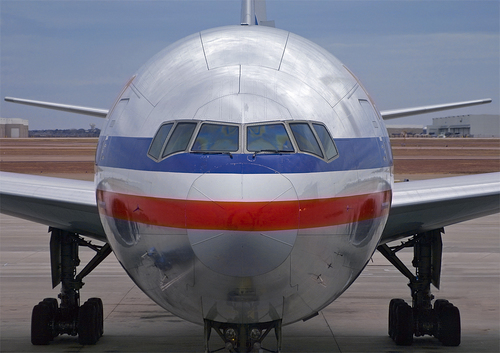
Loyalty doesn’t always go both ways. That’s the sad truth that members of the frequent flyer programs for most of the major North American carriers found out this fall when two of the biggies—Delta and United—announced that they would be instituting major changes to their loyalty programs. To be fair, those changes brought them into line with the policies already being used by Southwest Airlines, JetBlue and a number of other carriers.
I recently sat down with Tim Winship, the founder of FrequentFlier.com to discuss the changes, and why American Airlines deciding to stay with the program it has, is a win for travelers.
Pauline Frommer: So, before we get to the news about American Airlines, tell us about United and Delta.
Winship: Beginning next year United and Delta will both convert their current mileage based programs to spend-based programs, which basically award miles according to the number of dollars you spend rather than the number of miles you fly.
Frommer: And it’s even worse than that for infrequent travelers because the dollar amount spent will then be multiplied, based on what tier of membership you have. Those who are “elite” members will see their money convert to more miles, correct?
Winship: There is a multiplier which keys to your status as an elite member. So if you’re a non-elite member, maybe you get three times the number of miles in dollars you spend, versus an elite member who would enjoy a much higher multiple.
Frommer: So under these new programs, how much harder will it be for the average Joe, who might fly three times a year, who doesn’t have a mileage-giving credit card, to rack up enough miles to actually get a free flight?
Winship: It could be considerably more difficult. It could be so difficult that it doesn’t make sense anymore to be loyal to a single carrier unwaveringly.
Frommer: So let’s talk about American Airlines. They’ve just announced that they’re bucking the trend and won’t be changing their program. What does that mean for travelers.
Winship: It means business as usual. You will continue to earn miles according to the number of miles actually flown. And this really makes American an outlier as far as North American carriers go. Frankly, I don’t know if they’ll be able to stick to their guns on this because spend-based programs will likely be far more profitable for carriers. Their stockholders may force them to switch.
Frommers: OK, good to know. But for now, would it be fair to say that the advice now is, if you have the choice between several carriers that you should pick American so that you can rack up miles more easily for use in the future?
Winship: That is certainly the advice for if you’re at the infrequent, leisure traveler end of the spectrum. If you’re a business traveler, the spend programs may benefit you in terms of the miles you earn during the year.
Frommer: When I’ve written about this issue in the past, readers have written in to say that the smart way to earn miles is to do so not by flying but by using a credit card that earns you miles. Will any of the recent news change that model?
Winship: Certainly credit cards will remain an important source of miles for many consumers.
Frommer: Are credit cards now the the smarter way earn mileage then, in most cases?
Winship: If you’re going to use a credit card as your primary source of earning, that’s typically a strategy that’s best for people who aren’t traveling often and live in an area where the airport isn’t dominated by a single airline. It’s a more opportunistic strategy for the people who won’t be best served by a traditional airline loyalty program.
(Photo by Andrew Morrell/flickr)





